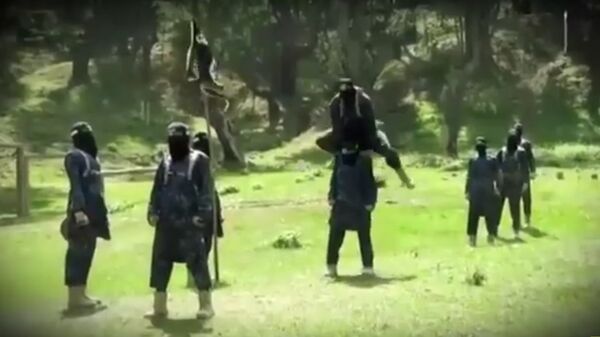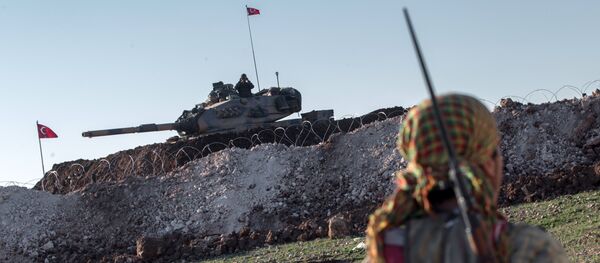Earlier this week, New York-based security intelligence firm The Soufan Group estimated that since June of 2014, Daesh (ISIL) has more than doubled their recruitment of foreign fighters, bringing in between 27,000 and 31,000 new fighters from abroad in an 18 month period. The number of fighters from EU countries grew to 5,000. 4,700 fighters were also believed to have been recruited from the countries of the former Soviet Union (2,400 of them from Russia).
According to the expert, it is Daesh's "romantic aura," combined with a "lack of satisfaction with their own lives," which drives many young people to join the terrorist organization.
Among Western European countries, Sasmaz suggests, these factors are reinforced "by rampant Islamophobia, and the growing power of radical and right-wing organizations. Youth dissatisfied with their own lives, feeling that they cannot influence in the political and social realities in their country in any way, observe on social networks what is happening in Syria and Iraq, and begin to create a romanticized image of a 'fighter for faith' against the world."
"This image," the expert notes, "encourages young people in the West to travel to Syria and to join the Daesh."
Status as a Geopolitical Reality is Key to Daesh's Success
"Daesh," according to Sasmaz, "is a geopolitical player, nourished by Islamist rhetoric." In other words, its status as a quasi-state is what separates it from other terrorist organizations, including al-Qaeda. "In contrast to al-Qaeda, which also has a cellular structure, but which led a global fight, relying only on ideology and offering no plans to create a 'universal Islamic state', Daesh has managed, in one way or another, to take control [of pieces of] Syria and Iraq, territories inhabited by millions of people."
"Therefore," the analyst suggests, "it's only logical that such a strong organization has a structure aimed at recruiting new members into its ranks from other countries and regions, especially from Western countries. Daesh attracts adventure-seeking, 'hot blooded' young people ready to rush headlong into the abyss of a world struggle, which in Daesh's case is a struggle for the 'purity of Islam' and the creation of a 'true caliphate'."
"The most important thing which needs to be done right now to more effectively combat terrorism is to prevent the departure of radicalized individuals from their own countries. If France or Britain are spying on suspicious individuals in their own country, they must also stop their attempts to leave the country."



